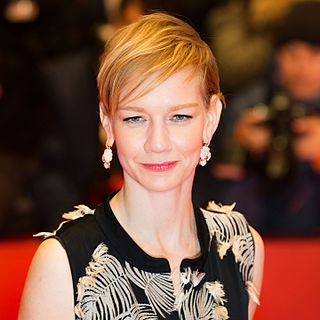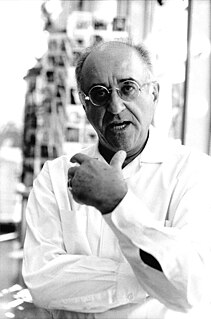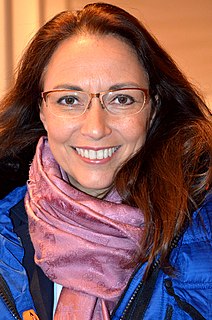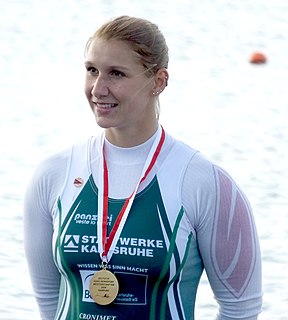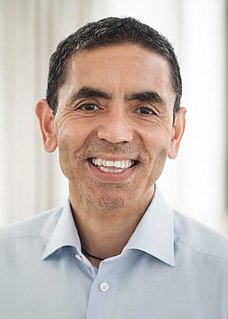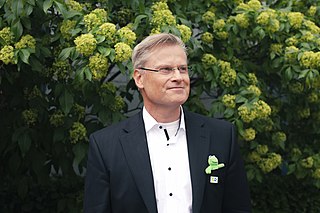| Year | Research team | Project name |
|---|
| 1997 | Christhard Deter, LDT GmbH & Co. Laser-Display-Technologie KG, Gera | „Einprägsames Bilderleben mit Laser-Großbildprojektion, der flachste Bildschirm variabel in Größe, Norm und Farbe“ |
| 1998 | Peter Grünberg, Forschungszentrum Jülich | „Entdeckung des GMR-Effektes“ |
| 1999 | Peter Gruss (speaker), Herbert Jäckle [ de ], Max Planck Institute for Biophysical Chemistry, Göttingen | „Molekularbiologische Verfahren für innovative Therapien“ |
| 2000 | Karlheinz Brandenburg (speaker), Bernhard Grill, Harald Popp, Fraunhofer-Institut für Integrierte Schaltungen IIS, Erlangen | „MP3-Komprimierung von Audiosignalen in Hifi-Qualität für Internet und Rundfunk“ |
| 2001 | Wolfgang Wahlster, Deutsches Forschungszentrum für Künstliche Intelligenz, Saarbrücken | „Sprachverstehende Computer als Dialog- und Übersetzungsassistenten“ |
| 2002 | Maria-Regina Kula (speaker), Martina Pohl, Institut für Enzymtechnologie der Heinrich-Heine-Universität Düsseldorf im Forschungszentrum Jülich | „Sanfte Chemie mit biologischen Katalysatoren“ |
| 2003 | Kazuaki Tarumi (speaker), Melanie Klasen-Memmer, Matthias Bremer, Merck KGaA, Darmstadt | „Leichter, heller, schneller: Flüssigkristalle für Fernsehbildschirme“ |
| 2004 | Rainer Hintsche (speaker), Walter Gumbrecht, Roland Thewes, Fraunhofer-Institut für Siliziumtechnologie (ISIT), Itzehoe Siemens AG, Power & Sensor Systems, Corporate Technology, Erlangen Infineon, München | „Labor auf dem Chip – Elektrische Biochiptechnologie“ |
| 2005 | Friedrich Boecking (spokesperson), Klaus Egger, Hans Meixner, Robert Bosch GmbH, Stuttgart, Siemens VDO Automotive AG, Regensburg | „Piezo-Injektoren: neue Technik für saubere und sparsame Diesel- und Benzinmotoren“ |
| 2006 | Stefan Hell, Max Planck Institute for Biophysical Chemistry, Göttingen | „Lichtmikroskopie in ungekannter Schärfe“ |
| 2007 | Klaus Streubel (spokesperson), Stefan Illek, Osram Opto Semiconductors GmbH, Regensburg, Andreas Bräuer, Fraunhofer-Institut für Angewandte Optik und Feinmechanik (IOF), Jena | „Licht aus Kristallen – Leuchtdioden erobern unseren Alltag“ |
| 2008 | Jiri Marek (speaker), Michael Offenberg und Frank Melzer, Robert Bosch GmbH, Reutlingen, Bosch Sensortec GmbH, Reutlingen | „Smarte Sensoren erobern Konsumelektronik, Industrie und Medizin“ |
| 2009 | Frank Misselwitz (speaker), Dagmar Kubitza und Elisabeth Perzborn, Bayer Schering Pharma AG, Wuppertal | „Thrombosen verhindern – eine Tablette kann Leben retten“ |
| 2010 | Peter Post (speaker), Markus Fischer, Andrzej Grzesiak*, Festo AG & Co. KG., Esslingen, *Fraunhofer-Institut für Automatisierung und Produktionstechnik (IPA), Stuttgart | „Vorbild Elefantenrüssel – ein Hightech-Helfer für Industrie und Haushalt“ |
| 2011 | Karl Leo (speaker), Jan Blochwitz-Nimoth, Martin Pfeiffer, TU Dresden, Novaled AG, Heliatek GmbH, Dresden | „Organische Elektronik – mehr Licht und Energie aus hauchdünnen Molekülschichten“ |
| 2012 | Birger Kollmeier (speaker), Volker Hohmann, Torsten Niederdränk, Carl von Ossietzky Universität Oldenburg und *Siemens AG, München | „Binaurale Hörgeräte – räumliches Hören für alle“ |
| 2013 | Jens König (speaker, Bosch), Stefan Nolte, Dirk Sutter, Robert Bosch GmbH mit dem Entwicklungszentrum Schwieberdingen, Friedrich-Schiller-Universität Jena, Fraunhofer-Institut für Angewandte Optik und Feinmechanik, Jena, TRUMPF Laser GmbH + Co. KG, Schramberg | „Ultrakurzpulslaser für die industrielle Massenfertigung – produzieren mit Lichtblitzen“ |
| 2014 | Stephanie Mittermaier (speaker), Peter Eisner and Katrin Petersen (Prolupin GmbH, Grimmen) and Fraunhofer-Institut für Verfahrenstechnik und Verpackung | „Lebensmittelzutaten aus Lupinen – Beitrag zu ausgewogener Ernährung und verbesserter Proteinversorgung“ |
| 2015 | Ardeschir Ghofrani (Speaker), Reiner Frey, Johannes-Peter Stasch (Bayer Pharma AG, Wuppertal) Justus-Liebig-Universität Gießen | „Entlastung für Herz und Lunge – vom Nitroglyzerin zu innovativen Therapien“ (Riociguat) |
| 2016 | Manfred Curbach (Speaker), Chokri Cherif, Peter Offermann – TU Dresden | „Das faszinierende Material Carbonbeton – sparsam, schonend, schön“ |
| 2017 | Sami Haddadin (Speaker), Simon Haddadin, Sven Parusel, Leibniz University Hannover, FRANKA EMIKA GmbH, München | „Mittelpunkt Mensch – Roboterassistenten für eine leichtere Zukunft“ |
| 2018 | Helga Rübsamen-Schaeff (Speaker), Holger Zimmermann, AiCuris Anti-infective Cures GmbH, Wuppertal | „Schutz bei fehlendem Immunsystem – die lebensrettende Innovation gegen gefährliche Viren“ |
| 2019 | Alexander Rinke (Speaker), Bastian Nominacher, Martin Klenk, Celonis, München | „Process mining – Schlüsseltechnologie für die Zukunft der Arbeit und Wertschöpfung in Unternehmen“ |
| 2020 [4] | Peter Kürz (Speaker, Carl Zeiss SMT), Michael Kösters (TRUMPF Lasersystems for Semiconductors Manufacturing GmbH) and Sergiy Yulin (Fraunhofer Institute for Applied Optics and Precision Engineering) | „EUV-Lithographie – neues Licht für das digitale Zeitalter“ |
| 2021 [5] [6] [7] | Uğur Şahin (Speaker), Özlem Türeci, Christoph Huber, Katalin Karikó, BioNTech SE, Mainz | „mRNA vaccines for humanity – the first COVID-19 vaccine ushers in a new era in medicine“ |
| 2022 [8] | Thomas Kalkbrenner (Speaker), Jörg Siebenmorgen and Ralf Wolleschensky from Carl Zeiss Microscopy in Jena | „Exploring the basics of life – a novel microscope for gentle 3D imaging of living cells“ |





